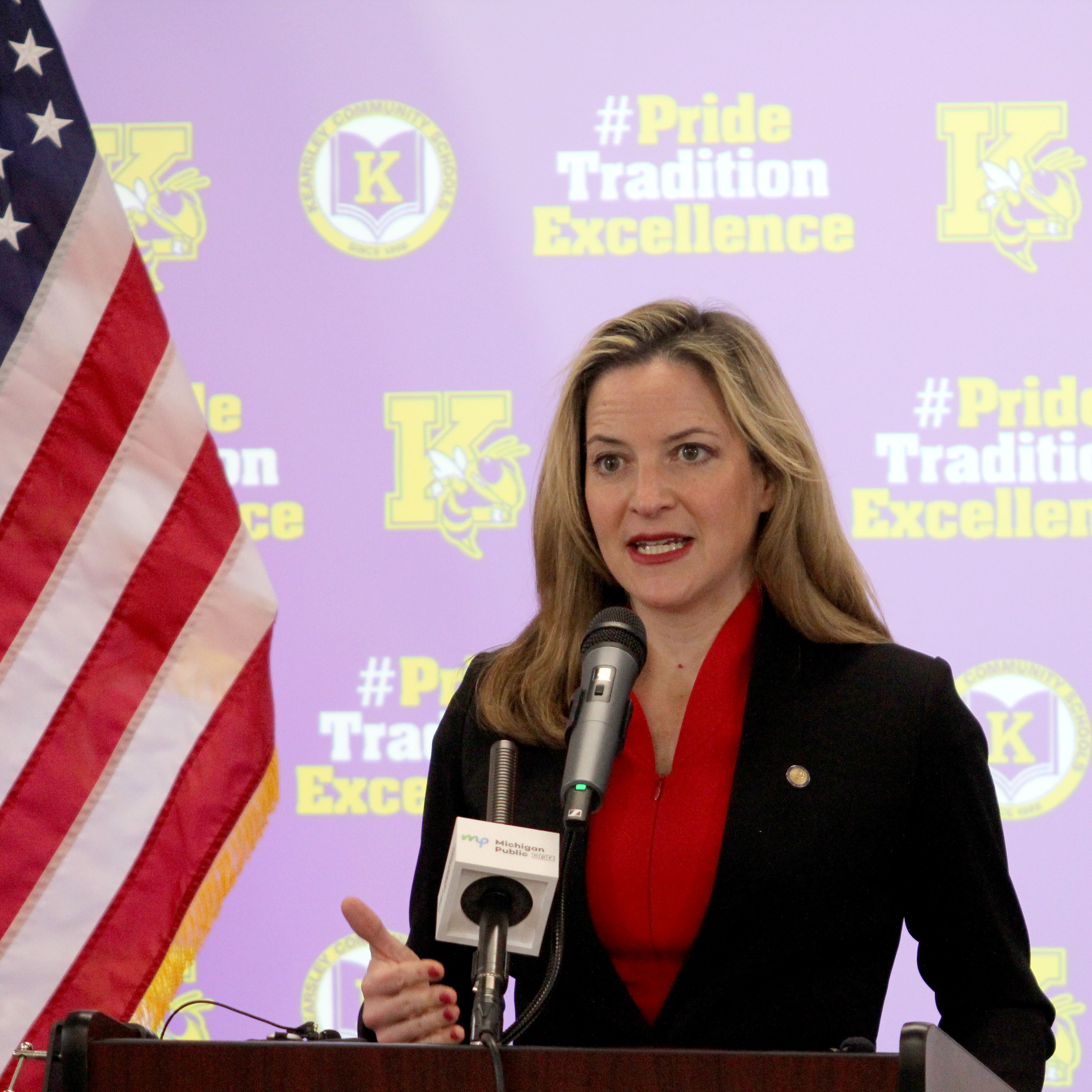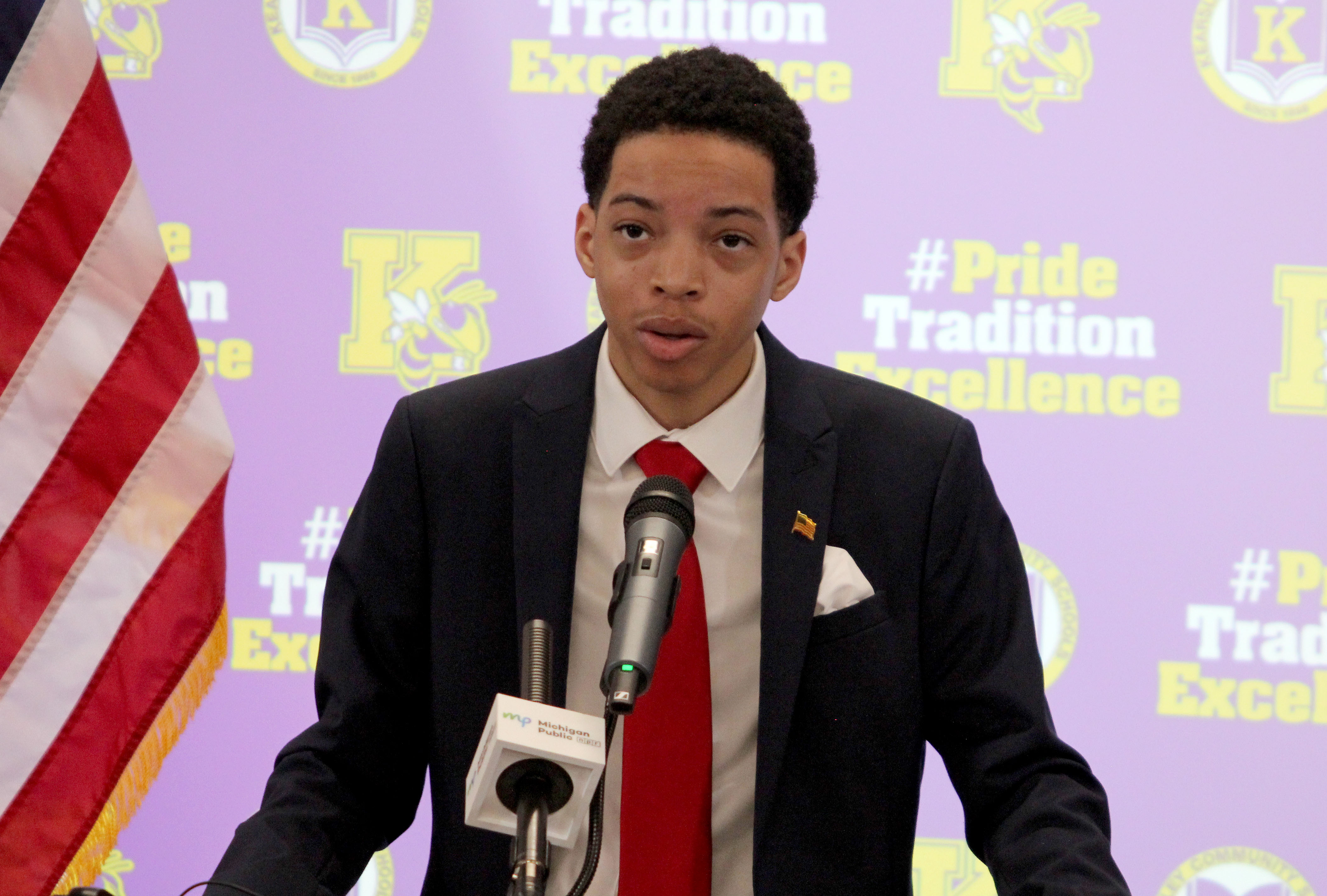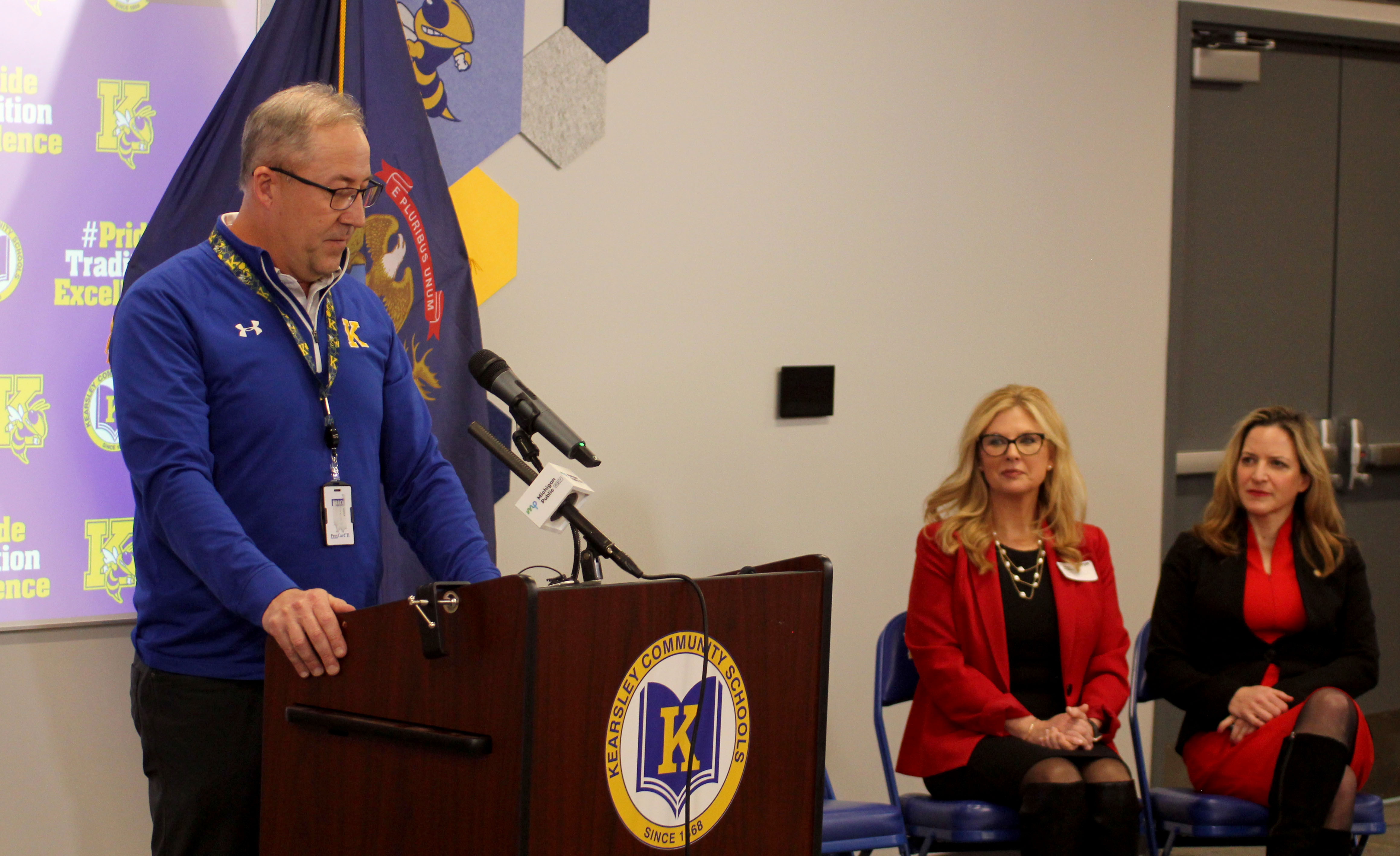Benson, MEA advocate for driver’s ed to return to public schools

Improved equity, safer roads, lower costs and higher quality. For these reasons and more, the push to return driver’s education to public schools took center stage at a press conference with Secretary of State Jocelyn Benson on Monday in Kearsley.
Benson was joined by MEA President Chandra Madafferi, plus educators and students from the Flint-area school’s driver education program – Kearsley is one of just 38 Michigan public schools that still provide these courses as an in-school option for students.
“Twenty years ago, the state of Michigan shifted the cost burden for driver’s education directly onto teens and their families,” Benson said. “Most private providers deliver quality instruction, but with the first segment of driver’s ed costing as much as $650, many families simply can’t afford it. As a result, fewer teens are getting trained and licensed – especially those who are Black, Hispanic, or from low-income families.
“This year, we will work with educators and partners in state government to help more families afford driver’s education and connect public schools with resources to offer programs for high school students.”
In 2024, MEA is committed to working with Secretary Benson to remove barriers to driver’s education through two voluntary grant programs:
- A need-based grant to cover the costs of Graduated Driver License (GDL) Segments 1 & 2 and road testing.
- A voluntary grant program for public schools – particularly those in underserved geographic areas – to offset expenses associated with becoming a driver’s education provider, including vehicle purchases and hiring instructors.

“Schools are an ideal place to provide driver’s education – our state’s amazing educators already know their students, and they are trained in instruction and held to local and state standards,” Madafferi said. “Overwhelmingly, Michigan educators and administrators I’ve spoken to want to see driver’s education return to the schools as much as possible. That’s why we strongly support Secretary Benson’s plan, which will address inequities, lower costs for families and, most importantly, save lives.”
In 2004, the State of Michigan eliminated the Driver Education Fund, putting an end to most school-based driver’s education programs. An analysis of Department of State records shows that in 2000, 66% of eligible Michigan teens had driver’s licenses. By 2021, that number had dropped to 56%.
“Fewer educated, licensed teen drivers can mean limited education and employment opportunities, and create additional hardships for families,” Benson said. “It also potentially means there are more unlicensed, untrained drivers on Michigan roads.”
The move to private instruction has contributed to racial and income inequities, as well. A 2012 nationwide study by the AAA Foundation for Traffic Safety, reported that only 29 percent of Hispanic teens and 37 percent of non-Hispanic Black teens had their driver’s licenses by the age of 18, compared to 67 percent of non-Hispanic white teens.
The same study found that only one in four teens in households with total incomes under $20,000 a year had their driver’s licenses before their 18th birthday. But where household income exceeded $100,000, 79 percent of teens were licensed by the time they turned 18.

Those challenges were highlighted by one of the student speakers at Monday’s event: Julian Morris, a junior at Saginaw High School.
“I recently embarked on the exciting journey of getting my driver’s license only to be confronted by the substantial financial burden that comes with driver’s education,” said Morris, who recently wrote Benson calling for free driver’s education for public school students. “It’s an issue that not only affects me but affects teenagers all across the state. I recall sharing my experience with some of my peers only to hear, ‘At least you can afford to learn to drive.’
“Learning to drive should not be determined by affordability. It is a rite of passage and a fundamental step towards independence and responsibility. It opens doors to education, employment, and essential life experiences.”
Andy Nester, a driver’s education instructor at Kearsley High School, emphasized the importance of developing safe and responsible drivers through their school-based program, which serves between 70 and 90 students per year with training both in-class and behind the wheel in vehicles donated by the local Applegate Chevrolet dealership.

“Our students benefit not only from quality education, but also being taught by familiar and trusted teachers in a comfortable environment,” Nester said. “With additional funding, our program could expand and meet the needs of a larger portion of our student body. Driver’s education should not be a numbers game – it should be about shaping responsible, informed and safe drivers for our community.”
Given motor vehicle crashes are the leading cause of death for U.S. teens, improving safety and equity of access to these programs is essential, Madafferi said.
“We can and must do better by our kids. That is why we at the MEA look forward to working with Secretary Benson and lawmakers from both sides of the aisle to implement programs supporting in-school driver’s education.”
Morris agreed: “Driving should not be a privilege reserved only for those who can afford it – access to driver’s training ensures opportunities for teenagers regardless of their economic background.”


